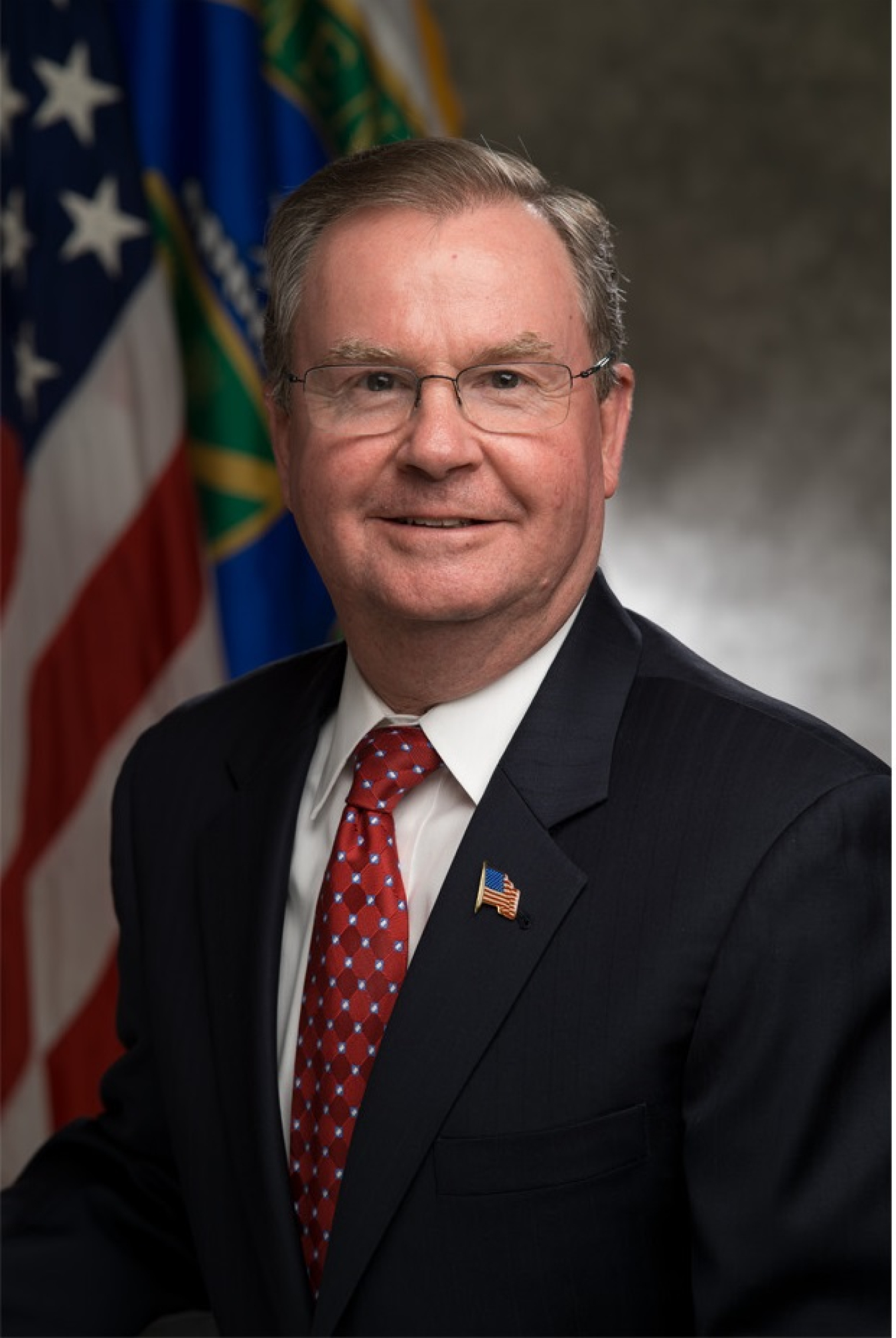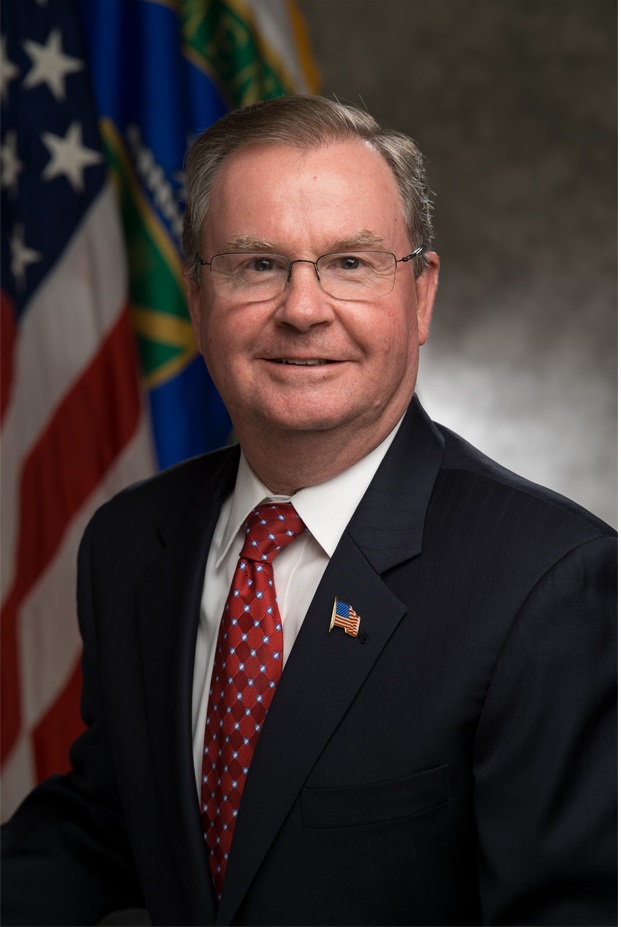Remarks of Assistant Secretary for Fossil Energy Steven Winberg as prepared at Africa Oil Week in Cape Town, South Africa.
Hydrocarbons and Geothermal Energy Office
November 5, 2019Remarks of Assistant Secretary for Fossil Energy Steven Winberg as prepared at Africa Oil Week in Cape Town, South Africa on November 5, 2019.
Thank you, and good afternoon.
I’m honored to represent the United States and the Department of Energy here this week, and I welcome the opportunity to talk to you today about U.S.-African energy collaboration.
The United States and nations across Africa have strong and long-standing relationships that span critical areas of cooperation – from economic advancement to energy development – to improve the quality of life of Africans and to ensure a future of growth, prosperity and opportunity across this vast continent.
The Trump Administration’s Africa Strategy seeks to strengthen America’s partnerships with African countries through commercial ties that enhance mutual prosperity. And that’s the idea behind the Administration’s precedent-setting new Prosper Africa initiative-- to boost two-way trade and investment between the United States and Africa.
With six of the ten fastest growing economies in the world and over one billion consumers, Africa is poised to play a pivotal role in the global economy, especially as it unleashes the talents and aspirations of its young and growing population. Meanwhile, businesses in Africa see a U.S. consumer market of more than 300 million people that already has a purchasing power of $13 trillion.
Prosper Africa’s objective is to significantly increase two-way trade and investment between the United States and Africa. And Prosper Africa will mobilize and coordinate – for the first time ever – the full U.S. government’s toolkit of approaches, capabilities, influence, and assistance to significantly increase two-way trade and investment between the U.S. and continental Africa, while creating permanent jobs in the U.S. and in Africa.
The initiative will work with the private sector to produce sustainable and transparent development. American companies not only bring significant capital, innovation, and proven solutions, but they also adhere to the highest standards of transparency, quality, and social responsibility—a clear alternative to state-directed investments that often saddle countries with unsustainable debt.
So, we want our friends and economic partners in Africa to thrive, prosper, and control their own destinies. And two critical ways to create prosperity and security are through energy development and increased energy access– from upstream production and development to jobs across the energy sector, and of course through expanding energy access to underserved communities. Whether developing your own energy resources or importing market based energy, a strong and diverse energy sector is key to prosperity.
And that, of course, is the goal of the Power Africa initiative, which aims to add more than 30,000 megawatts of cleaner, more efficient electricity generation capacity and 60 million new home and business connections in Sub Saharan Africa.
So far, more than 124 power transactions representing over 10,000 MW have reached financial close, and nearly 3,500 of those MWs are producing power. And today, more than 14 million homes and businesses have been connected to on- and off-grid power, providing more than 73 million people with needed electricity – and making a real difference in peoples’ lives.
So, we welcome the opportunity to partner with you across the energy spectrum – from hydro and renewable energy, to maximizing the potential of fossil energy, which is what I’d like to focus my remarks on today.
Africa has vast fossil energy resources. Of course, Africa is home to five of the world's top oil-producing countries, and more than a dozen African countries produce natural gas. And South Africa, of course, is a leading coal producer.
Africa is also home to immense unconventional oil and gas reserves. Large parts of Africa have these largely untapped resources. And development of those resources provides great opportunities for expanded energy development and economic growth.
In the United States, we’ve seen firsthand the benefits of that development.
As you know, as a result of unlocking our unconventional oil and gas resources – what we call the shale revolution – the U.S. is now the world’s top producer of oil and natural gas. We expect to be a net energy exporter next year, but we’re already a net exporter of natural gas – something that would have been unthinkable a decade ago.
And, by making available a low-cost and abundant natural gas feedstock, the development of our unconventional resources is spurring a renaissance in American manufacturing.
Now, much of this transformation is due to the ingenuity of the U.S. private sector. But government also played a role.
The Department of Energy supported the early research that helped expand the knowledge and understanding of shale gas – and fostered the development of two critical technologies: horizontal drilling and advanced hydraulic fracturing. These technologies, applied by innovative pioneers in industry, were the keys that unlocked the potential of shale gas in the U.S.
So, the story here is that effective collaboration between the public and private sectors can yield tremendous – even transformational – results.
That transformative potential is not confined to the U.S. alone – it exists here in Africa, as well. And the U.S. government and American companies welcome the opportunity to work with you to expand energy development in your countries. And I can make this promise – we will partner with you on fair and equal terms that won’t imperil your long-term economic development or your sovereignty, and will help empower you to unleash your own ingenuity.
And, by the way, I think that’s an important fact to remember should you consider the potential of U.S. LNG to help diversify your resource supply and meet energy needs on the continent.
In addition to abundant natural gas resources and growing export capacity in the U.S., we have a transparent market, an extensive pipeline delivery system, and a vibrant spot market for natural gas deliveries. And our LNG contracts are among the most flexible and innovative on the global market – our customers know that they can rely on the rule of law and the sanctity of contracts when doing business with the United States.
In just the past three years, we have exported LNG to nearly 40 destinations on five continents – including Africa. And the Department of Energy has also engaged with a number of African countries to explore Floating Storage Regasification Units, which provide a flexible and cost-effective way to receive and process LNG shipments.
For our friends and partners around the world and here in Africa, U.S. LNG can provide a dependable and reliable diversity of energy supplies.
So, at the end of the day, the United States is more than well-positioned to share not only our abundant resources with other countries, but also the technology and know-how that helped unleash those resources in the first place.
Now, I want to turn for a moment to coal, which is an important resource for electricity generation in parts of Africa. And I just want to note that we’re pleased that U.S. coal exports are helping a number of African countries to meet their energy and economic needs.
But in addition to coal exports, we at the Department of Energy are working with industry and other partners to modernize coal-fired power generation. I think that once they’re commercialized, a number of the technologies we’re researching and developing can help you use your own coal resources more cleanly and efficiently. And they could be of particular benefit in coal-rich South Africa, where coal provides three-quarters of the power generation and supports the export of electricity to a number of its neighbors.
One approach that holds particular promise – in the U.S. and, we think, in Africa, too – is the development of small, modular, highly efficient coal plants that can meet the demands of evolving modern electric grids. This is the objective of our Coal FIRST initiative. FIRST is an acronym for Flexible, Innovative, Resilient, Small, and Transformative.
Under this initiative, we’re beginning to develop the next-generation of coal plants that are expected to be in the capacity range of 50 MW to around 350 MW, and operate with high efficiency and close-to-zero emissions. Ultimately, their modularity, size, and flexibility mean these plants can be sited wherever they’re needed – near industrial facilities, for instance and burn a wide variety of fuels, including coal, biomass, natural gas and, in some cases, even waste materials such as plastics..
And we see an opportunity for countries in Africa to use these technologies to improve energy security and – in many cases – to expand energy access to those who live without reliable electricity by enabling them to use indigenous fuels, including coal.
And, of course, we’re continuing our R&D on carbon capture, utilization, and storage – or CCUS – to help reduce carbon emissions from coal plants and to convert that CO2 from a waste to a valuable commercial resource. And our CCUS R&D program includes critical collaboration with partners around the globe.
Like the U.S., South Africa is a member of the Clean Energy Ministerial’ s CCUS Initiative, which is working to foster greater collaboration between the public and private sectors to accelerate CCUS. And we welcome the opportunity to expand the collaboration with more African countries on this critical clean energy technology.
At the end of the day, we see the enormous potential for expanded energy development on this vast and diverse continent. And we know that development won’t necessarily follow the same path that is taking place in the U.S. or Europe. Every country in Africa and for that matter, around the world face their own unique issues and circumstances. A one-size-fits-all approach simply won’t work and is completely unrealistic.
Ultimately, you will find the solutions that best meet your energy challenges.
The U.S. has no interest or desire in promoting one specific approach or attaching onerous strings and conditions to our partnership and collaboration. Instead, we are interested in working with you according to your priorities and your goals.
So, my message today is that – from initiatives like Prosper Africa and Power Africa, to knowledge-sharing and making available world-class technologies and reliable resources to our African partners – we stand ready to work with you for a prosperous and energy-secure Africa.
Thank you.
Steven Winberg

Steven Winberg, Assistant Secretary for Fossil Energy
Steven Winberg served as Assistant Secretary for Fossil Energy. He was responsible for the management and oversight of FE’s research and development program, encompassing coal, oil, and natural gas, as well as the Office of Petroleum Reserves.
Mr. Winberg has 39 years of experience in the energy industry. He began his career at the engineering firm Foster Wheeler as an engineer on coal-fired utility boilers. From there, he spent 14 years with Consolidated Natural Gas working in a variety of positions before becoming Vice President for CONSOL Energy Research & Development. Immediately prior to coming to DOE, Mr. Winberg served as a Senior Program Manager at Battelle Memorial Institute.
Over the span of his career, Mr. Winberg has participated in a number of policy and energy initiatives. He has also gained extensive experience in numerous energy technologies, including advanced fossil energy combustion, coal-to-liquids, fluidized bed combustion, emulsified fuels, fuel cells, alternative fuel vehicles, and carbon utilization.
Mr. Winberg received a bachelor’s degree in nuclear science from the State University of New York Maritime College in 1978 and an MBA from the University of Pittsburgh in 1991.


